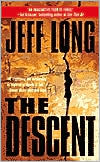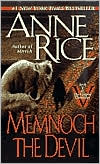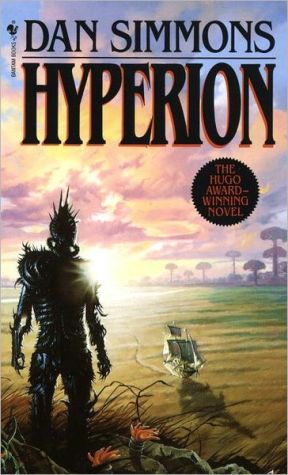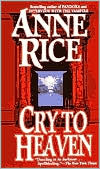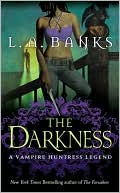The Descent
We are not alone…In a cave in the Himalayas, a guide discovers a self-mutilated body with the warning—Satan exists. In the Kalahari Desert, a nun unearths evidence of a proto-human species and a deity called Older-than-Old. In Bosnia, something has been feeding upon the dead in a mass grave. So begins mankind’s most shocking realization: that the underworld is a vast geological labyrinth populated by another race of beings. Some call them devils or demons. But they are real. They are down...
Search in google:
Hell exists.In Tibet, while guiding trekkers to a holy mountain, Ike Crockett discovers a bottomless cave. When his lover disappears, Ike pursues her into the depths of the earth....USA Today - Jon KrakauerA remarkable novel, an imaginative tour de force...It is a rip-roaring good read.
Chapter 1: Ike\ It is easy to go down into Hell . . . ; but to climb back again, to retrace one's steps to the upper air-there’s the rub. . . —Virgil, Aeneid\ The Himalayas,\ Tibet Autonomous Region\ 1988\ In the beginning was the word.\ Or words.\ Whatever these were.\ They kept their lights turned off. The exhausted trekkers huddled in the dark cave and faced the peculiar writing. Scrawled with a twig, possibly,\ dipped in liquid radium or some other radioactive paint, the fluorescent pictographs floated in the black recesses. Ike let them savor the distraction. None of them seemed quite ready to focus on the storm beating against the mountainside outside.\ With night descending and the trail erased by snow and wind and their yak herders in mutinous flight with most of the gear and food, Ike was relieved to have shelter of any kind. He was still pretending for them that this was part of their trip. In fact they were off the map. He'd never heard of this hole-in-the-wall hideout. Nor seen glow-in-the-dark caveman graffiti.\ "Runes," gushed a knowing female voice. "Sacred runes left by a wandering monk."\ The alien calligraphy glowed with soft violet light in the cave's cold bowels. The luminous hieroglyphics reminded Ike of his old dorm wall with its black-light posters. All he needed was a lash of Hendrix plundering Dylan's anthem, say, and a whiff of plump Hawaiian red sinsemilla. Anything to vanquish the howl of awful wind. Outside in the cold distance, a wildcat did growl. . . .\ "Those are no runes," said a man. "It's Bonpo." A Brooklyn beat, the accent meant Owen. Ike had nine clients here, only two of them male. They were easy to keep straight.\ "Bonpo!" one of the women barked at Owen. The coven seemed to take collective delight in savaging Owen and Bernard, the other man. Ike had been spared so far. They treated him as a harmless Himalayan hillbilly.\ Fine with him.\ "But the Bonpo were pre-Buddhist," the woman expounded.\ The women were mostly Buddhist students from a New Age university. These things mattered very much to them.\ Their goal was-or had been-Mount Kailash, the pyramidal giant just east of the Indian border. "A Canterbury Tale for the World Pilgrim" was how he'd advertised the trip. A kor-a Tibetan walkabout-to and around the holiest mountain in the world. Eight thousand per head, incense included. The problem was, somewhere along the trail he'd managed to misplace the mountain. It galled him. They were lost. Beginning at dawn today, the sky had changed from blue to milky gray. The herders had quietly bolted with the yaks. He had yet to announce that their tents and food were history.\ The first sloppy snowflakes had started kissing their Gore-Tex hoods just an hour ago, and Ike had taken this cave for shelter. It was a good call.\ He was the only one who knew it, but they were now about to get sodomized by an old-fashioned Himalayan tempest.\ Ike felt his jacket being tugged to one side, and knew it would be Kora,\ wanting a private word. "How bad is it?" she whispered. Depending on the hour and day, Kora was his lover, base-camp shotgun, or business associate.\ Of late, it was a challenge estimating which came first for her, the business of adventure or the adventure of business. Either way, their little trekking company was no longer charming to her.\ Ike saw no reason to front-load it with negatives. "We've got a great cave," he said.\ "Gee."\ "We're still in the black, head-count-wise."\ "The itinerary's in ruins. We were behind as it was."\ "We're fine. We'll take it out of the Siddhartha's Birthplace segment." He kept the worry out of his voice, but for once his sixth sense, or whatever it was, had come up short, and that bothered him. "Besides, getting a little lost will give them bragging rights."\ "They don't want bragging rights. They want schedule. You don't know these people. They're not your friends. We'll get sued if they don't make their Thai Air flight on the nineteenth."\ "These are the mountains," said Ike. "They'll understand." People forgot.\ Up here, it was a mistake to take even your next breath for granted.\ "No, Ike. They won't understand. They have real jobs. Real obligations.\ Families." That was the rub. Again. Kora wanted more from life. She wanted more from her pathless Pathfinder.\ "I'm doing the best I can," Ike said.\ Outside, the storm went on horsewhipping the cave mouth. Barely May, it wasn't supposed to be this way. There should have been plenty of time to get his bunch to, around, and back from Kailash. The bane of mountaineers,\ the monsoon normally didn't spill across the mountains this far north. But as a former Everester himself, Ike should have known better than to believe in rain shadows or in schedules. Or in luck. They were in for it this time.\ The snow would seal their pass shut until late August. That meant he was going to have to buy space on a Chinese truck and shuttle them home via Lhasa—and that came out of his land costs. He tried calculating in his head, but their quarrel overcame him.\ "You do know what I mean by Bonpo," a woman said. Nineteen days into the trip, and Ike still couldn't link their spirit nicknames with the names in their passports. One woman, was it Ethel or Winifred, now preferred Green Tara, mother deity of Tibet. A pert Doris Day look-alike swore she was special friends with the Dalai Lama. For weeks now Ike had been listening to them celebrate the life of cavewomen. Well, he thought, here's your cave, ladies. Slum away.\ They were sure his name—Dwight David Crockett—was an invention like their own. Nothing could convince them he wasn't one of them, a dabbler in past lives. One evening around a campfire in northern Nepal, he'd regaled them with tales of Andrew Jackson, pirates on the Mississippi, and his own legendary death at the Alamo. He'd meant it as a joke, but only Kora got it.\ "You should know perfectly well," the woman went on, "there was no written language in Tibet before the late fifth century."\ "No written language that we know about," Owen said.\ "Next you'll be saying this is Yeti language."\ It had been like this for days. You'd think they'd run out of air. But the higher they went, the more they argued.\ "This is what we get for pandering to civilians," Kora muttered to Ike.\ Civilians was her catch-all: eco-tourists, pantheist charlatans, trust funders, the overeducated. She was a street girl at heart.\ "They're not so bad," he said. "They're just looking for a way into Oz,\ same as us."\ "Civilians."\ Ike sighed. At times like this, he questioned his self-imposed exile.\ Living apart from the world was not easy. There was a price to be paid for choosing the less-traveled road. Little things, bigger ones. He was no longer that rosy-cheeked lad who had come with the Peace Corps. He still had the cheekbones and cowled brow and careless mane. But a dermatologist on one of his treks had advised him to stay out of the high-altitude sun before his face turned to boot leather. Ike had never considered himself God's gift to women, but he saw no reason to trash what looks he still had. He'd lost two of his back molars to Nepal's dearth of dentists, and another tooth to a falling rock on the backside of Everest. And not so long ago, in his Johnnie Walker Black and Camels days, he'd taken to serious self-abuse, even flirting with the lethal west face of Makalu. He'd quit the smoke and booze cold when some British nurse told him his voice sounded like a Rudyard Kipling punchline. Makalu still needed slaying, of course. Though many mornings he even wondered about that.\ Exile went deeper than the cosmetics or even prime health, of course.\ Self-doubt came with the territory, a wondering about what might have been,\ had he stayed the course back in Jackson. Rig work. Stone masonry. Maybe mountain guiding in the Tetons, or outfitting for hunters. No telling. He'd spent the last eight years in Nepal and Tibet watching himself slowly devolve from the Golden Boy of the Himalayas into one more forgotten surrogate of the American empire. He'd grown old inside. Even now there were days when Ike felt eighty. Next week was his thirty-first birthday.\ "Would you look at this?" rose a cry. "What kind of mandala is that? The lines are all twisty."\ Ike looked at the circle. It was hanging on the wall like a luminous moon.\ Mandalas were meditation aids, blueprints for divinity's palaces. Normally they consisted of circles within circles containing squared lines. By visualizing it just so, a 3-D architecture was supposed to appear above the mandala's flat surface. This one, though, looked like scrambled snakes.\ Ike turned on his light. End of mystery, he congratulated himself.\ ven he was stunned by the sight.\ "My God," said Kora.\ Where, a moment before, the fluorescent words had hung in magical suspense,\ a nude corpse stood rigidly propped upon a stone shelf along the back wall.\ The words weren't written on stone. They were written on him. The mandala was separate, painted on the wall to his right side.\ A set of rocks formed a crude stairway up to his stage, and various passersby had attached katas—long white prayer scarves—to cracks in the stone ceiling. The katas sucked back and forth in the draft like gently disturbed ghosts.\ The man's grimace was slightly bucktoothed from mummification, and his eyes were calcified to chalky blue marbles. Otherwise the extreme cold and high altitude had left him perfectly preserved. Under the harsh beam of Ike's headlamp, the lettering was faint and red upon his emaciated limbs and belly and chest.\ That he was a traveler was self-evident. In these regions, everyone was a pilgrim or a nomad or a salt trader or a refugee. But, judging from his scars and unhealed wounds and a metal collar around his neck and a warped,\ badly mended broken left arm, this particular Marco Polo had endured a journey beyond imagination. If flesh is memory, his body cried out a whole history of abuse and enslavement.\ They stood beneath the shelf and goggled at the suffering. Three of the women—and Owen—began weeping. Ike alone approached. Probing here and there with his light beam, he reached out to touch one shin with his ice ax: hard as fossil wood.\ Of all the obvious insults, the one that stood out most was his partial castration. One of the man's testicles had been yanked away, not cut, not even bitten—the edges of the tear were too ragged—and the wound had been cauterized with fire. The burn scars radiated out from his groin in a hairless keloid starburst. Ike couldn't get over the raw scorn of it. Man's tenderest part, mutilated, then doctored with a torch.\ "Look," someone whimpered. "What did they do to his nose?"\ Midcenter on the battered face was a ring unlike anything he'd ever seen before. This was no silvery Gen-X body piercing. The ring, three inches across and crusted with blood, was plugged deep in his septum, almost up into the skull. It hung to his bottom lip, as black as his beard. It was,\ thought Ike, utilitarian, large enough to control cattle.\ Then he got a little closer and his repulsion altered. The ring was brutal.\ Blood and smoke and filth had coated it almost black, but Ike could plainly see the dull gleam of solid gold.\ Ike turned to his people and saw nine pairs of frightened eyes beseeching him from beneath hoods and visors. Everyone had their lights on now. No one was arguing.\ "Why?" wept one of the women.\ A couple of the Buddhists had reverted to Christianity and were on their knees, crossing themselves. Owen was rocking from side to side, murmuring Kaddish.\ Kora came close. "You beautiful bastard." She giggled. Ike started. She was talking to the corpse.\ "What did you say?"\ "We're off the hook. They're not going to hit us up for refunds after all.\ We don't have to provide their holy mountain anymore. They've got something better."\ "Let up, Kora. Give them some credit. They're not ghouls."\ "No? Look around, Ike."\ Sure enough, cameras were stealing into view in ones and twos. There was a flash, then another. Their shock gave way to tabloid voyeurism.\ In no time the entire cast was blazing away with eight-hundred-dollar point-and-shoots. Motor drives made an insect hum. The lifeless flesh flared in their artificial lightning. Ike moved out of frame, and welcomed the corpse like a savior. It was unbelievable. Famished, cold, and lost,\ they couldn't have been happier.\ One of the women had climbed the stepping-stones and was kneeling to one side of the nude, her head tilted sideways.\ She looked down at them. "But he's one of us," she said.\ "What's that supposed to mean?"\ "Us. You and me. A white man."\ Someone else framed it in less vulgar terms. "A Caucasian male?"\ "That's crazy," someone objected. "Here? In the middle of nowhere?"\ Ike knew she was right. The white flesh, the hair on its forearms and chest, the blue eyes, the cheekbones so obviously non-Mongoloid. But the woman wasn't pointing to his hairy arms or blue eyes or slender cheekbones.\ She was pointing at the hieroglyphics painted on his thigh. Ike aimed his light at the other thigh. And froze.\ The text was in English. Modern English. Only upside down.\ It came to him. The body hadn't been written upon after death. The man had written upon himself in life. He'd used his own body as a blank page.\ Upside down. He'd inscribed his journal notes on the only parchment guaranteed to travel with him. Now Ike saw how the lettering wasn't just painted on, but crudely tattooed.\ Wherever he could reach, the man had jotted bits of testimony. Abrasions and filth obscured some of the writing, particularly below the knees and around his ankles. The rest of it could easily have been dismissed as random and lunatic. Numbers mixed with words and phrases, especially on the outer edges of each thigh, where he'd apparently decided there was extra room for new entries. The clearest passage lay across his lower stomach.\ " 'All the world will be in love with night,' " Ike read aloud, " 'and pay no worship to the garish sun.' "\ "Gibberish," snapped Owen, badly spooked.\ "Bible talk," Ike sympathized.\ "No, it's not," piped up Kora. "That's not from the Bible. It's Shakespeare. Romeo and Juliet."\ Ike felt the group's repugnance. Indeed, why would this tortured creature choose for his obituary the most famous love story ever written? A story about opposing clans. A tale of love transcending violence. The poor stiff had been out of his gourd on thin air and solitude. It was no coincidence that in the highest monasteries on earth,\ men endlessly obsessed about delusion. Hallucinations were a given up here.\ Even the Dalai Lama joked about it.\ "And so," Ike said, "he's white. He knew his Shakespeare. That makes him no older than two or three hundred years."\ It was becoming a parlor game. Their fear was shifting to morbid delight.\ Forensics as recreation.\ "Who is this guy?" one woman asked.\ "A slave?"\ "An escaped prisoner?"\ Ike said nothing. He went nose-to-nose with the gaunt face, hunting for clues. Tell your journey, he thought. Speak your escape. Who shackled you with gold? Nothing. The marble eyes ignored their curiosity. The grimace enjoyed its voiceless riddles.\ Owen had joined them on the shelf, reading from the opposite shoulder. "RAF."\ Sure enough, the left deltoid bore a tattoo with the letters RAF beneath an eagle. It was right side up and of commercial quality. Ike grasped the cold arm.\ "Royal Air Force," he translated.\ The puzzle assembled. It even half-explained the Shakespeare, if not the chosen lines.\ "He was a pilot?" asked the Paris bob. She seemed charmed.\ "Pilot. Navigator. Bombardier." Ike shrugged. "Who knows?"\ Like a cryptographer, he bent to inspect the words and numbers twining the flesh. Line after line, he traced each clue to its dead end. Here and there he punctuated complete thoughts with a jab of his fingertip. The trekkers backed away, letting him work through the cyphers. He seemed to know what he was doing.\ Ike circled back and tried a string in reverse. It made sense this time.\ Yet it made no sense. He got out his topographical map of the Himalayan chain and found the longitude and latitude, but snorted at their nexus. No way, he thought, and lifted his gaze across the wreckage of a human body.\ He looked back at the map. Could it be?\ "Have some." The smell of French-pressed gourmet coffee made him blink. A plastic mug slid into view. Ike glanced up. Kora's blue eyes were forgiving. That warmed him more than the coffee. He took the cup with murmured thanks and realized he had a terrific headache. Hours had passed.\ Shadows lay pooled in the deeper cave like wet sewage.\ Ike saw a small group squatting Neanderthal-style around a small Bluet gas stove, melting snow and brewing joe. The clearest proof of their miracle was that Owen had broken down and was actually sharing his private stock of coffee. There was one hand-grinding the beans in a plastic machine, another squeezing the filter press, yet another grating a bit of cinnamon on top of each cupful. They were actually cooperating. For the first time in a month,\ Ike almost liked them.\ "You okay?" Kora asked.\ "Me?" It sounded strange, someone asking after his well-being. Especially her.\ As if he needed any more to ponder, Ike suspected Kora was going to leave him. Before setting off from Kathmandu, she'd announced this was her final trek for the company. And since Himalayan High Journeys was nothing more than her and him, it implied a larger dissatisfaction. He would have minded less if her reason was another man, another country, better profits, or higher risks. But her reason was him. Ike had broken her heart because he was Ike, full of dreams and childlike naôvetè. A drifter on life's stream.\ What had attracted her to him in the first place now disturbed her, his lone wolf/high mountains way. She thought he knew nothing about the way people really worked, like this notion of a lawsuit, and maybe there was some truth to that. He'd been hoping the trek would somehow bridge their gap, that it would draw her back to the magic that drew him.\ Over the past two years she'd grown weary, though. Storms and bankruptcy no longer spelled magic for her.\ "I've been studying this mandala," she said, indicating the painted circle filled with squirming lines. In the darkness, its colors had been brilliant and alive. In their light, the drawing was bland. "I've seen hundreds of mandalas, but I can't make heads or tails out of this one. It looks like chaos, all those lines and squiggles. It does seem to have a center,\ though." She glanced up at the mummy, then at Ike's notes. "How about you?\ Getting anywhere?"\ He'd drawn the oddest sketch, pinning words and text in cartoon balloons to different positions on the body and linking them with a mess of arrows and lines.\ Ike sipped at the coffee. Where to begin? The flesh declared a maze, both in the way it told the story and in the story it told. The man had written his evidence as it occurred to him, apparently, adding and revising and contradicting himself, wandering with his truths. He was like a shipwrecked diarist who had suddenly found a pen and couldn't quit filling in old details.\ "First of all," he began, "his name was Isaac."\ "Isaac?" asked Darlene from the assembly line of coffee makers. They had stopped what they were doing to listen to him.\ Ike ran his finger from nipple to nipple. The declaration was clear.\ Partially clear. I am Isaac, it said, followed by In my exile / In my agony of Light.\ "See these numbers?" said Ike. "I figure this must be a serial number. And\ 10/03/23 could be his birthday, right?"\ "Nineteen twenty-three?" someone asked. Their disappointment verged on childlike. Seventy-five years old evidently didn't qualify as a genuine antique.\ "Sorry," he said, then continued. "See this other date here?" He brushed aside what remained of the pubic patch. "4/7/44. The day of his shoot-down,\ I'm guessing."\ "Shoot-down?"\ "Or crash."\ They were bewildered. He started over, this time telling them the story he was piecing together. "Look at him. Once upon a time, he was a kid.\ Twenty-one years old. World War II was on. He signed up or got drafted.\ That's the RAF tattoo. They sent him to India. His job was to fly the Hump."\ "Hump?" someone echoed. It was Bernard. He was furiously tapping the news into his laptop.\ "That's what pilots called it when they flew supplies to bases in Tibet and China," Ike said. "The Himalayan chain. Back then, this whole region was part of an Oriental Western Front. It was a rough go. Every now and then a plane went down. The crews rarely survived."\ "A fallen angel," sighed Owen. He wasn't alone. They were all becoming infatuated.\ "I don't see how you've drawn all that from a couple of strands of numbers," said Bernard. He aimed his pencil at Ike's latter set of numbers.\ "You call that the date of his shoot-down. Why not the date of his marriage, or his graduation from Oxford, or the date he lost his virginity?\ What I mean is, this guy's no kid. He looks forty. If you ask me, he wandered away from some scientific or mountain-climbing expedition within the last couple years. He sure as snow didn't die in 1944 at the age of twenty-one."\ "I agree," Ike said, and Bernard looked instantly deflated. "He refers to a period of captivity. A long stretch. Darkness. Starvation. Hard labor." The sacred deep.\ "A prisoner of war. Of the Japanese?"\ "I don't know about that," Ike said.\ "Chinese Communists, maybe?"\ "Russians?" someone else tried.\ "Nazis?"\ "Drug lords?"\ "Tibetan bandits!"\ The guesses weren't so wild. Tibet had long been a chessboard for the Great Game.\ "We saw you checking the map. You were looking for something."\ "Origins," Ike said. "A starting point."\ "And?"\ With both hands, Ike smoothed down the thigh hair and exposed another set of numbers. "These are map coordinates."\ "For where he got shot down. It makes perfect sense." Bernard was with him now.\ "You mean his airplane might be somewhere close?"\ Mount Kailash was forgotten. The prospect of a crash site thrilled them.\ "Not exactly," Ike said.\ "Spit it out, man. Where did he go down?"\ Here's where it got a little fantastic. Mildly, Ike said, "East of here."\ "How far east?"\ "Just above Burma."\ "Burma!" Bernard and Cleopatra registered the incredibility. The rest sat mute, perplexed within their own ignorance.\ "On the north side of the range," said Ike, "slightly inside Tibet."\ "But that's over a thousand miles away."\ "I know."\ It was well past midnight. Between their cafe lattes and adrenaline, sleep was unlikely for hours to come. They sat erect or stood in the cave while the enormity of this character's journey sank in.\ "How did he get here?"\ "I don't know."\ "I thought you said he was a prisoner."\ Ike exhaled cautiously. "Something like that."\ "Something?"\ "Well." He cleared his throat softly. "More like a pet."\ "What!"\ "I don't know. It's a phrase he uses, right here: 'favored cosset.' That's a pet calf or something, isn't it?"\ "Ah, get out, Ike. If you don't know, don't make it up."\ He hunched. It sounded like crazed drivel to him, too.\ "Actually it's a French term," a voice interjected. It was Cleo, the librarian. "Cosset means lamb, not calf. Ike's right, though. It does refer to a pet. One that is fondled and enjoyed."\ "Lamb?" someone objected, as if Cleo-or the dead man, or both-were insulting their pooled intelligence.\ "Yes," Cleo answered, "lamb. But that bothers me less than the other word,\ 'favored.' That's a pretty provocative term, don't you think?"\ By the group's silence, they clearly had not thought about it.\ "This?" she asked them, and almost touched the body with her fingers. "This is favored? Favored over what others? And above all, favored by whom? In my mind, anyway, it suggests some sort of master."\ "You're inventing," a woman said. They didn't want it to be true.\ "I wish I were," said Cleo. "But there is this, too."\ Ike had to squint at the faint lettering where she was pointing. Corvée, it said.\ "What's that?"\ "More of the same," she answered. "Subjugation. Maybe he was a prisoner of the Japanese. It sounds like The Bridge on the River Kwai or something."\ "Except I never heard of the Japanese putting nose rings in their prisoners," Ike said.\ "The history of domination is complex."\ "But nose rings?"\ "All kinds of unspeakable things have been done."\ Ike made it more emphatic. "Gold nose rings?"\ "Gold?" She blinked as he played his light on the dull gleam.\ "You said it yourself. A favored lamb. And you asked the question, Who favored this lamb?"\ "You know?"\ "Put it this way. He thought he did. See this?" Ike pushed at one ice-cold leg. It was a single word almost hidden on the lef quadricep.\ "Satan," she lip-read to herself.\ "There's more," he said, and gently rotated the skin.\ Exists, it said.\ "This is part of it, too." He showed her. It was assembled on the flesh like a prayer or a poem. Bone of my bones / flesh of my flesh. "From Genesis, right? The Garden of Eden."\ He could sense Kora struggling to orchestrate some sort of rebuttal. "He was a prisoner," she tried. "He was writing about evil. In general. It's nothing. He hated his captors. He called them Satan. The worst name he knew."\ "You're doing what I did," Ike said. "You're fighting the evidence."\ "I don't think so."\ "What happened to him was evil. But he didn't hate it."\ "Of course he did."\ "And yet there's something here," Ike said.\ "I'm not so sure," Kora said.\ "It's in between the words. A tone. Don't you feel it?"\ Kora did—her frown was clear—but she refused to admit it. Her wariness seemed more than academic.\ "There are no warnings here," Ike said. "No 'Beware.' No 'Keep Out.' "\ "What's your point."\ "Doesn't it bother you that he quotes Romeo and Juliet? And talks about Satan the way Adam talked about Eve?"\ Kora winced.\ "He didn't mind the slavery."\ "How can you say that?" she whispered.\ "Kora." She looked at him. A tear was starting in one eye. "He was grateful. It was written all over his body."\ She shook her head in denial.\ "You know it's true."\ "No, I don't know what you're talking about."\ "Yes, you do," Ike said. "He was in love."\ —Reprinted from The Descent by Jeff Long by permission of Berkley, a member of Penguin Putnam Inc. Copyright © 1999, Jeff Long. All rights reserved. This excerpt, or any parts thereof, may not be reproduced in any form without permission.
\ Jon KrakauerA remarkable novel, an imaginative tour de force...It is a rip-roaring good read. \ — USA Today\ \ \ \ \ Rocky Mountain NewsThe best beach-reading book in years.\ \ \ Publishers WeeklyThe premise of this millennial thriller is as audacious as it is problematic: "if there can be a historical Christ," one character hypothesizes, "why not a historic Satan?" Demystification of the ultimate Bad Guy is no easy feat, but Long (Angels of Light) brings it off, if just barely, in a dizzying synthesis of supernatural horror, lost-race fantasy and military SF. From the experiences of a varied cast of characters--including Sister Ali, a Catholic nun serving in South Africa, and Elias Branch, a major with NATO forces in Bosnia--a 21st-century think tank calling itself the Beowulf Circle distills a startling theory: The biblical Satan and his devils in Hell are mythic renderings of Homo hadalis, grotesquely malformed offshoots of Homo sapiens who for centuries have surfaced from underground hideouts to prey on human beings. With the help of Ike Crockett, an escapee from 10 years of "hadal" captivity, Beowulf infiltrates the Helios Corporation's mission to explore caverns honeycombing Earth's interior. Once beneath the Mariana Trench, Beowulf discovers that Helios intends to forcefully annex the world inside the earth's crust to further its business ambitions. Meanwhile, topside, Beowulf's theologians and metaphysicians surmise that the elusive "Satan" has evolved a human form to pass secretly among mankind. Like the subterranean trail blazed by its adventurers, the narrative twists, turns, dead-ends and backtracks. Inventive scenes of underground wonders alternate with talky stretches of scientific discourse and mawkish moments of romance between Ike and Ali. Though its devils prove disappointingly to be made in the image of humans, Long's novel brims with energy, ideas and excitement. 150,000 first printing; major ad/promo; film rights sold to Warner Bros. Copyright 1999 Cahners Business Information.\ \ \ \ \ Library JournalWhat if hell really existed? The premise of The Descent is just that. We first meet the protagonist of the story, Ike Crockett, as he guides a group of tourists on a Tibetan walkabout. Trapped on a mountain during a blizzard, Ike leads the group into a cave that just happens to be a gateway to hell. More hellish evidence soon emerges at sites as far-flung as Bosnia and the Kalahari Desert. Long, author of The Ascent (LJ 6/1/92), set on Mt. Everest, here chooses a subject that invites comparison to Dante--but his style is more reminiscent of early Stephen King, when characters still mattered. While some sex appears in the story, violence is a greater concern, though it does further the plot. The story is complex, with some surprising twists near the end. All in all, this is one of those compelling books that is difficult to finish but even more difficult to put down. Recommended for larger suspense/horror collections. [Previewed in Prepub Alert, LJ 3/1/99.]--Alicia Graybill, Polley Music Lib., Lincoln City Libs., NE Copyright 1999 Cahners Business Information.\ \ \ \ \ Rocky Mountain NewsThe best beach-reading book in years.\ \ \ \ \ Kirkus ReviewsThe aptly surnamed author's long, long melodrama about a sub-planet sub-culture. Unlucky mountaineer Ike Crockett stumbles into absolutely the wrong cave one night. Spiraling downward faster than Alice did, he finds his own, terrifying kind of Wonderland plus lots of grief at the hands of the inhabitants, the horrible haddies (Homo hadalis is the technical term). Though the haddies, a lost species, come in a variety of sizes and shapes, usually they can be relied on for a vestigial tail, red or green eyes, and a rack of horns. Long (The Ascent, 1992, etc.) depicts them as big, strong, and resolutely opposed to any kind of accommodation with Homo sapiens. Also, as Ike painfully discovers, they've refined their torture and mutilation skills during eons of underground existence. Cut to Ali, a beautiful almost-nun laboring contentedly in a leper colony in South Africa's Kalahari Desert, who is about to have her own unsettling haddie experience. Ever-interested in an infusion of well-built breeders, since their home-grown types haven't been keeping pace and the species faces extinction, the haddies come that close to making Ali a kidnap victim. Eventually, she hooks up with Ike on an expedition exploring the stretch of haddie-land that extends beneath the Pacific. Ike, having escaped their clutches, is now a leading enemy expert and famous scout. Ali, passionate about philology, hopes the expedition will lead her to the origin of language. C.C. Cooper, head of the multinational corporation Helios and financial backer of the expedition, wants to colonize the sub-planet. Along the way, treachery, love, death, and a smattering of high-tech wizardry all get stuffed in as the group confrontshaddies and other baddies while wending its uncertain way across the perilous, uncharted sea floor. Decent enough prose and interesting characters, but, once again, Long buries them under an avalanche of plotting.\ \ \ \ \ Library JournalQ: what do a mountain guide, a beat-up military ‘copter pilot, and a linguistics-loving nun have in common in this book? A: they all become central to making sense of wtf is going on underground—and it’s not good. A horned, humanoid species called Homo hadalis—“hadals” for short—get ten kinds of pissed off when humans get anywhere near them. Sometimes they catch us, whereupon they promptly scare us, torture us and eat us. Here’s the equation: Horns+angry+torture=devils ÷ underground caves=hell. Creepy. Creepier when a megacorporation thinks it’s a license to print money. You’ll just have to bookmark your copy of Jared Brown’s Zero Mostel, A Biography (Atheneum, 1989.) and make room for this.\ \
